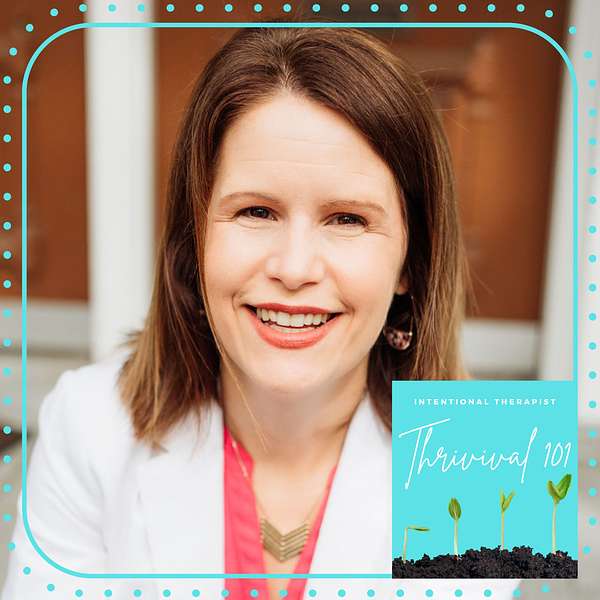
Intentional Therapist: Putting You In Your Schedule
Self-care shouldn’t be another task on your to-do list! This is the show that helps you as a busy and dedicated female mental health therapist to redefine your approach to self-care. Because we need so much more than bubble baths and breathing exercises!
Hosted by Dr. Karen Dyck and Dr. Melissa Tiessen, clinical psychologists, founders of Intentional Therapist, and self-care advocates, our mission is to help you build a life where you thrive right alongside your clients, without guilt and without burning out. Join us as we explore practical strategies grounded in our 4 C’s model – Connection, Compassion, Courage, and Creativity – to help you create more space for yourself while continuing to support your clients.
Whether you work in a solo private practice, within a large organization, are a new grad, or are nearing retirement, this show has something for you. Tune in for short but valuable episodes filled with relatable and insightful new perspectives, actionable ‘self-care experiments’, and the encouragement and permission you need to put more of you back in your schedule and create a life from which you don’t need to escape.
To learn more about Intentional Therapist and our 4 C’s model of self-care, visit us at: www.intentionaltherapist.ca
[Please note: This podcast was previously called Thrivival 101, and you can continue to find our original interview episodes in this podcast feed.]
Intentional Therapist: Putting You In Your Schedule
Embracing Spiritual Self-Care: A Conversation with Whitney Owens
For those of you who are familiar with Intentional Therapist and the 4 C’s model of self-care you know our Connection pillar includes not only connecting with others but also connecting with our own values. For many people, faith and spirituality are important values that we often don't talk enough about.
In this episode we speak with Whitney Owens about the ways she incorporates faith into her practice. Whitney talks with us about some of the common misconceptions about faith-based practice, some important considerations for running an ethical faith-based practice, and how connecting with her faith has been an important component of her own “soul-care.”
Highlights:
- Differences between incorporating faith into our business practices versus clinical practice
- Common misconceptions about faith-based practice
- How Whitney defines ethical faith-based practice
- How to ethically counter religious messages that negatively impact women’s’ self-care
- The distinction between “tired” and “weary”
- Whitney’s favorite “self-care” and “soul-care” practices
Whitney Owens is a licensed professional counselor, group practice owner, and faith-based private practice consultant. She is located in Savannah, Georgia, where she manages a private pay group practice with 10 plus clinicians. Along with running her practice, she consults practice owners around the country on how to start and grow a successful faith-based practice. She hosts summits, a weekly podcast, and a membership community for faith-based practice owners called Wise Practice. She has spoken at numerous events such as both the Georgia and Maryland annual professional counselors conferences as well as trainings for Florida’s Counseling Association. In 2023 she will be speaking at Meet you in Kentucky, which is for group practice owners, as well as hosting her own summit in Savannah. In her free time, Whitney enjoys spending time with her husband and two girls, running, reading, and relaxing in the backyard.
Connect with Whitney:
whitney@whitneyowens.com
https://www.whitneyowens.com/
https://watersedgecounseling.com/
Instagram: @WhitneyOwensConsulting
FREE PDF on Tips for Marketing with Churches:
https://www.whitneyowens.com/
Free Facebook Membership Community for Faith-Based Practice Owners:
https://www.facebook.com/groups/533909554128629
Connect with Melissa & Karen at Intentional Therapist:
intentional@intentionaltherapist.ca
https://www.linkedin.com/in/drmelissatiessen/
Share one of your own self-care experiments via our SpeakPipe page at: https://www.speakpipe.com/intentionaltherapist
Disclaimer: This podcast seeks to be educational in purpose and is not to be used as clinical advice. Please connect with a therapist one-on-one for personalized support.

